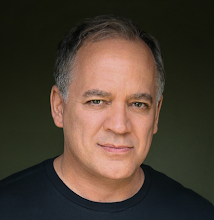Though I have been lucky enough to have never been a true addict (other than to cigarettes) I have seen it in full force around me and I have felt myself heading in that direction at times (pot and wine) but never really got there because I have a weak system and cannot develop tolerance to almost anything…
Luckily, this means that after three glasses of wine, I am tanked.
But then, if I am tanked after three why wouldn’t I just stop at two?
And this is my oversimplification of addiction (or at least the edge of addiction):
Addiction to simple things (like wine, food, sex, pot) is really nothing more than the normal appetite being allowed satiation with abandon, without controls.
Now, I know my 12 stepper friends have a much more evolved understanding of this. And perhaps because I never became a full fledged drunk or pothead, I do not really understand these things. And perhaps I am only speaking for myself as it relates to, “Sure did get too tanked at that party last month,” or, “Yeah, no one smokes cigarettes, until someone shows up with a pack of them,” etc., as I see myself behaving not much differently than most people on a Saturday night.
So the big question is---why do some people have control and others simply do not? People with food and sex addictions learn how to dial it back with effort.
I believe, with awareness, one could dial back almost anything. I also believe, with awareness, one could sense the drugs that are basically going to kill you if you get too involved with them.
I’ve plowed into cocaine about a dozen times. The stuff just feels like it will kill you. So, no need for that. (And so, no need ever to try Meth.)
Had a terrible trip on hallucinogens in college. Well, strike that off the list. Once that happened, I never saw any reason for any strong substance in that category.
And there it is.
Perhaps some people have exceptionally strong constitutions and they can take the abuse. I have trouble with cheese and beans.
Addiction was once probably a monkey saver. Evolutionarily, if you are insatiable, you probably got your hands on a lot more bananas than anyone else.
Being aware of that grabbiness---could that not be enough to stop the grab?

3 comments:
Someone very dear to me, who had been a 15-year addict of heroin, cocaine, alcohol and just about everything else -- and yet managed to be clean and sober for the last 5 years of his life (he died of heart failure, due to the damage he'd wrought on his ticker) -- explained that although he'd jumped on and off the wagon in countless rehabs, through all of it he simply couldn't imagine his life without drugs.
They had become so essential to what life was that he could not grasp that it was even possible to live without them. He said that "the lightbulb went on" during a conversation with an AA member, and almost without effort he lost his desire for the addictive substances.
But I think there is more to it than that... First, I believe his repeated attempts to dry off did chip away at the addiction; plus he was becoming a successful performer, and was reconnecting with his family, and had developed strong relationships with people who loved him. All of this, I believe, created an environment where the lightbulb COULD ignite.
I would even submit that his troubled early life created a vacuum in him which the substances either temporarily filled or numbed. Once he became more emotionally fulfilled, the substances were no longer necessary.
In The Maiden King, Marion Woodman puts it like this:
"Many people are undermined by the loss of connection to their own life energy in their own body. Patriarchal judgment in mothers and fathers has cut them off... In infancy, 'I desire' is indistinguishable from 'I need.'
"As adults, they look at other people who seem to love life and wonder why they themselves do not. They pretend, even as children, to be reaching out from their own desire. Their place of desire is false; their desiring is not coming from *natural* instincts; therefore, those instincts cannot be satisfied. Because their bodies are not expressing desires that come from natural instincts, they fall into unnatural desires, driven desires that overwhelm them with stupor and manifest as addictions.
"They crave food that brings them no nurturance, drink that brihngs them no spirit, sex that brings them no union."
Carol, I love all this, But I don't understand this sentence:
Patriarchal judgment in mothers and fathers has cut them off... In infancy, 'I desire' is indistinguishable from 'I need.'
And everything follows from that. But I don't get it... Oy! Words!
Post a Comment